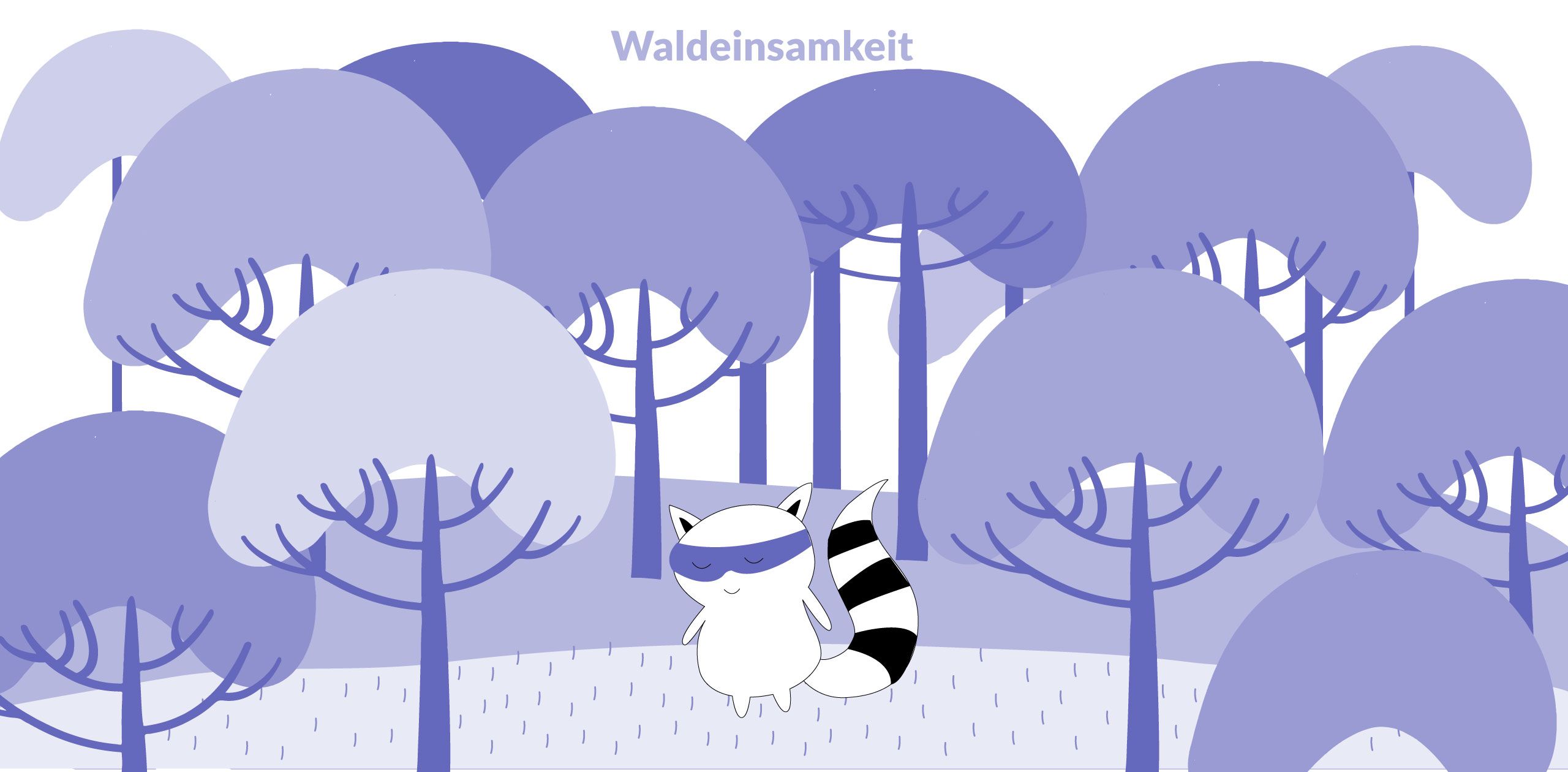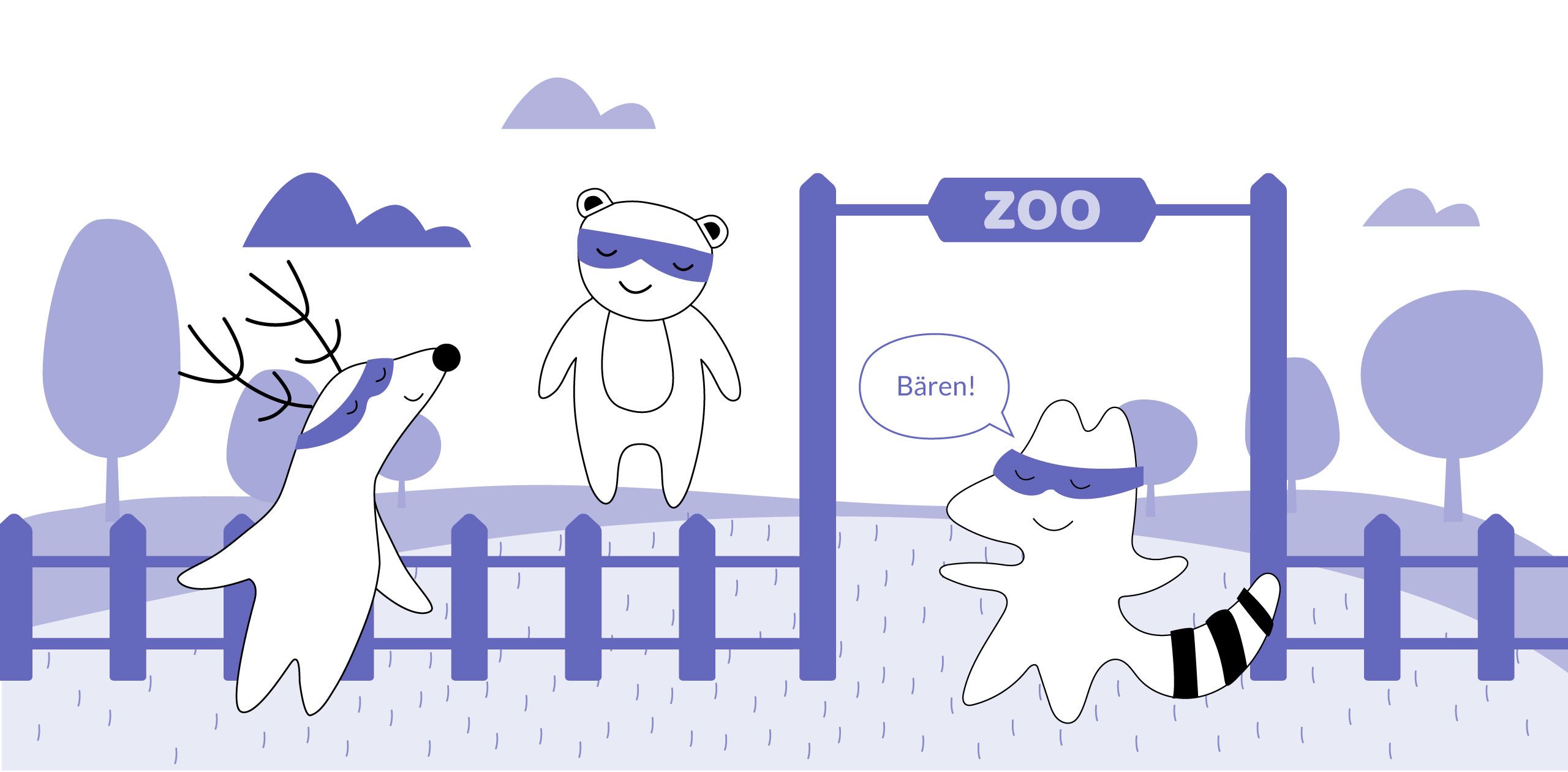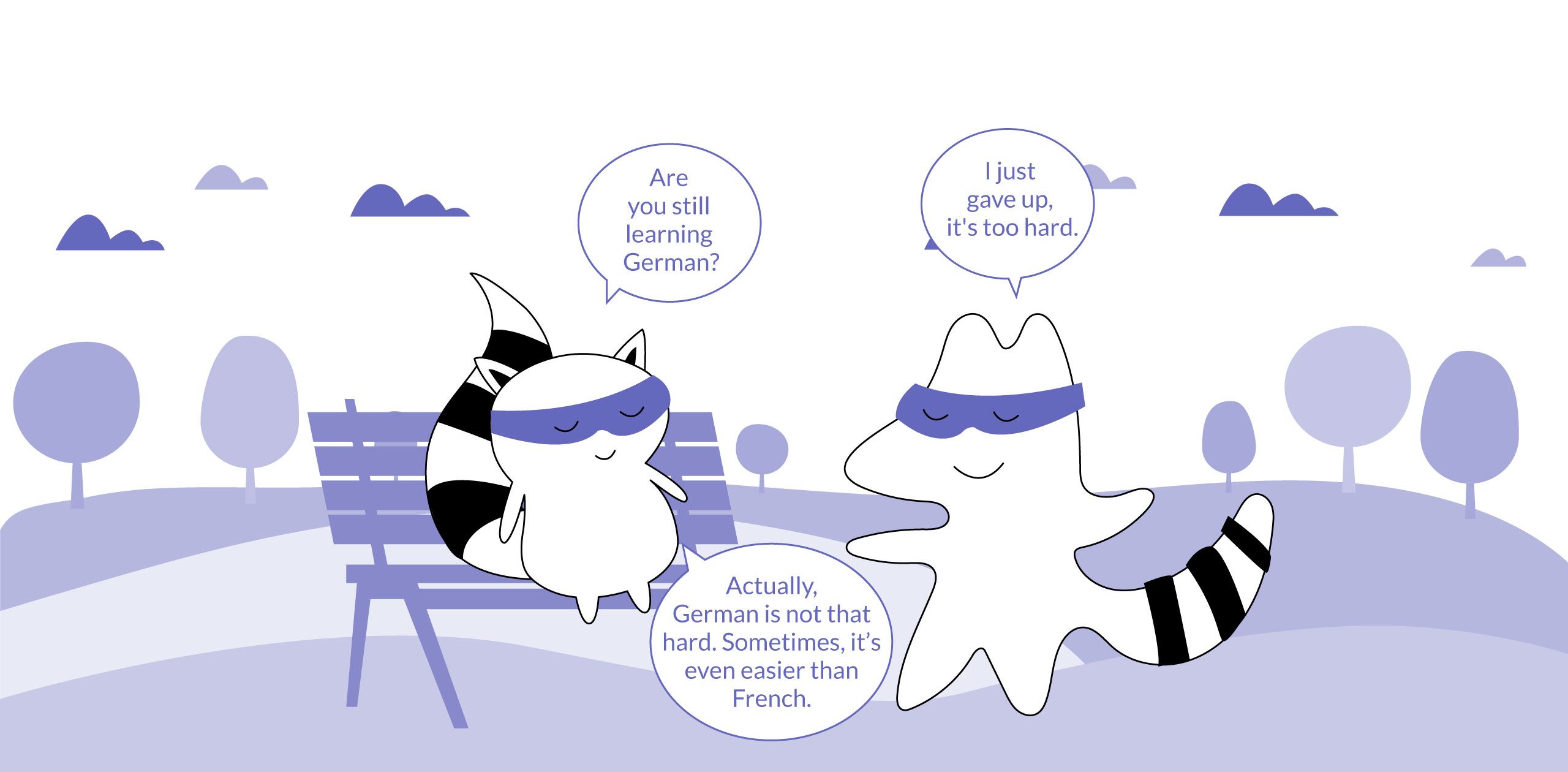
When learning a new language, there are always words that stand out and seem impossible to translate. These words are often the most fun part of the language learning process because they add a little bit of flair to the way you speak and give you unique insights about the culture. German is no exception, with dozens of unique words that have no direct English translation.
In fact, the German language is full of untranslatable words that describe concepts, feelings, or ideas in a way that just isn’t possible in other languages. Learning them will help add a little bit of flair to your German conversations and sound like a real native speaker.
Earlier on our blog, we have already covered the untranslatable German words for the complex feelings that don’t exist in other languages. However, there’s much more to learn. Let’s dive into the topic even more – here are 10 of the most interesting and unique German words that you will never forget:
Der Innere Schweinehund
Der Innere Schweinehund can be literally translated as "inner pig dog." This funny term is used to describe the lazy voice inside your head that tells you not to do something, usually when you need to do it. This voice can be very powerful and often wins out over our better judgment.
This term is most often used when someone is trying to make a change in their life, like quitting smoking or losing weight. It can be very hard to overcome the innere Schweinehund, but with enough willpower and determination, it can be done.
Native
Translation
Ich muss wirklich abnehmen, aber jedes Mal, wenn ich ins Fitnessstudio gehen will, sagt mir mein innerer Schweinehund, dass das zu schwer ist.
I really need to lose weight, but every time I want to go to the gym, my inner dog pig tells me it's too hard.
Ohrwurm
The German word Ohrwurm literally translates to "ear worm." This term is used to describe a tune or song stuck in your head that won't go away. It might be one of your favorite songs, or it could be something that just appeared in your brain and will not leave – for example, a strange TikTok song.
If you ever experienced that, you know how annoying and irritating an Ohrwurm can be. Our best tip when it comes to this is to simply let go. Yes, you might find yourself still humming the same tune over the course of the whole day, but the less you focus on it, the quicker your brain will forget it.
Native
Translation
Ich habe heute Morgen TikTok gesehen und jetzt habe ich einen Ohrwurm.
I watche TikTok this morning and now I have an ear worm.
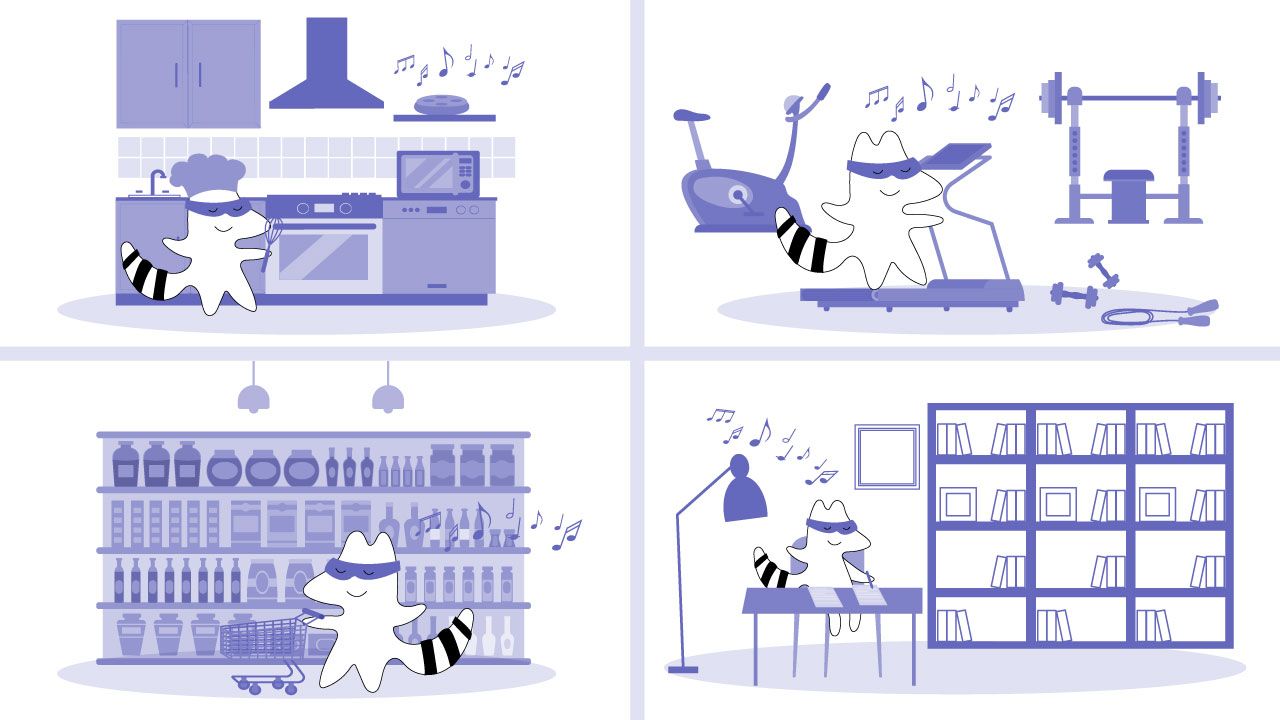
Treppenwitz
Treppenwitz is a German word that literally translates to "staircase joke." This term describes a situation where you come up with the perfect comeback or joke, but only after it's too late.
We've all been there – you're in the middle of an argument with someone and suddenly you think of the most clever thing to say, but by the time you open your mouth, the moment has passed.
Or you’re lying in bed in the evening, thinking about the conversation you had with someone today, and come up with a far better response than you actually gave. That's Treppenwitz. The good news is that these moments often make for great stories later on.
Native
Translation
Ich habe mich heute mit einigen Flat-Earthern gestritten, aber mir ist keine gute Antwort eingefallen. Und natürlich ist mir später ein Treppenwitz eingefallen!
I was arguing with some flat earthers today, but didn't come up with a good reply. And of course I came up with a staircase joke later!
Kummerspeck
The literal translation of the word Kummerspeck is "grief bacon." And no, it has nothing to do with sad pigs – instead, this word refers to the weight that you gain from emotional eating. We've all been there – a lot of people turn to food for comfort when bad things happen.
The next thing you know, you’re standing in front of an empty tub of ice cream or bag of chips, feeling guilty and regretful. But don't worry, Kummerspeck can be lost just as easily as it was gained. Just make sure to get back on track with your healthy eating habits and you'll be back to your normal self in no time.
Native
Translation
Ich habe nach der Trennung so viel Kummerspeck zugelegt.
I have gained so much kummerspeck after the break-up.
Dreikäsehoch
This funny word can be translated as “three cheeses high”, and, as you might have guessed, it’s used to describe short people (usually kids).
Dreikäsehoch implies that someone as tall as three wheels of cheese stacked on each other. However, it’s not the nicest word to use. If you want to describe someone with it, make sure you use it jokingly and only with people that you know won’t be offended.
Native
Translation
Ich bin fast 24 Jahre alt und ich bin immer noch Dreikäsehoch.
I’m almost 24 year old, and I'm still three cheeses high.
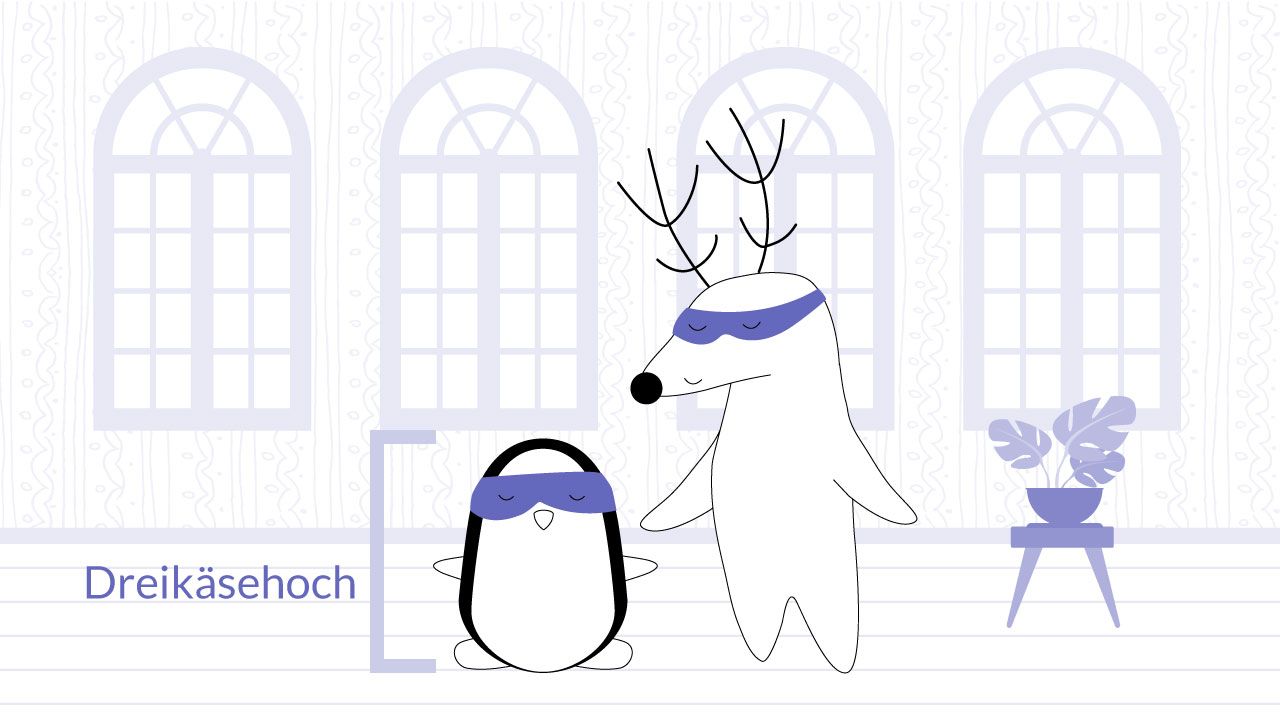
Zungenbrecher
This tongue-twisting word – Zungenbrecher – is actually the German alternative for the English phrase “tongue twister,” literally translated as “tongue breaker.” Just like in English, German Zungenbrecher can be quite difficult (and entertaining) to say, but for people who just start learning German, they can be a real challenge.
Zungenbrecher are usually made up of a series of words that are all similar, making them hard to pronounce correctly. For example:
Native
Translation
Können Sie diesen Zungenbrecher wiederholen? Brautkleid bleibt Brautkleid und Blaukraut bleibt Blaukraut.
Can you repeat this tongue twister? A wedding dress will always be a wedding dress and red cabbage will always be red cabbage.
Backpfeifengesicht
The word Backpfeifengesicht is a difficult word to translate into English - literally, it means "a face that needs to be slapped." It’s a longer, more specific word that can be used instead of the English "smug."
Have you met someone so particularly unpleasant that you want to slap them right there? For example, someone who parked in your space and told you they needed it more to just go to the store for five minutes? Or someone who steals your food from the work fridge? Or someone mansplaining to you what mansplaining is? That's Backpfeifengesicht.
Native
Translation
Ich hoffe, Jerry arbeitet heute von zu Hause aus. Ich kann dieses Backpfeifengesicht nicht ausstehen.
I hope Jerry works from home today. I can't stand this Backpfeifengesicht.
Feierabend
This word is one of the nicest ones on the list. It literally means “the evening of celebration” or “party evening.” It doesn’t really relate to the parties, though – this word basically used to describe the time when you can finally leave work and relax.
For example, if it’s 5 pm and you’re about to leave the office, you can say "Ich habe Feierabend" - "It's my Feierabend." Most Germans use this word to talk about the end of their working day, but it can also be used more broadly. For example, if you're finished with your studies or a project, you can also say that you have Feierabend.
Native
Translation
Ich werde meinen zweiten MA abschließen und endlich Feierabend machen.
I'm going to finish my second MA and I'm finally going to relax.
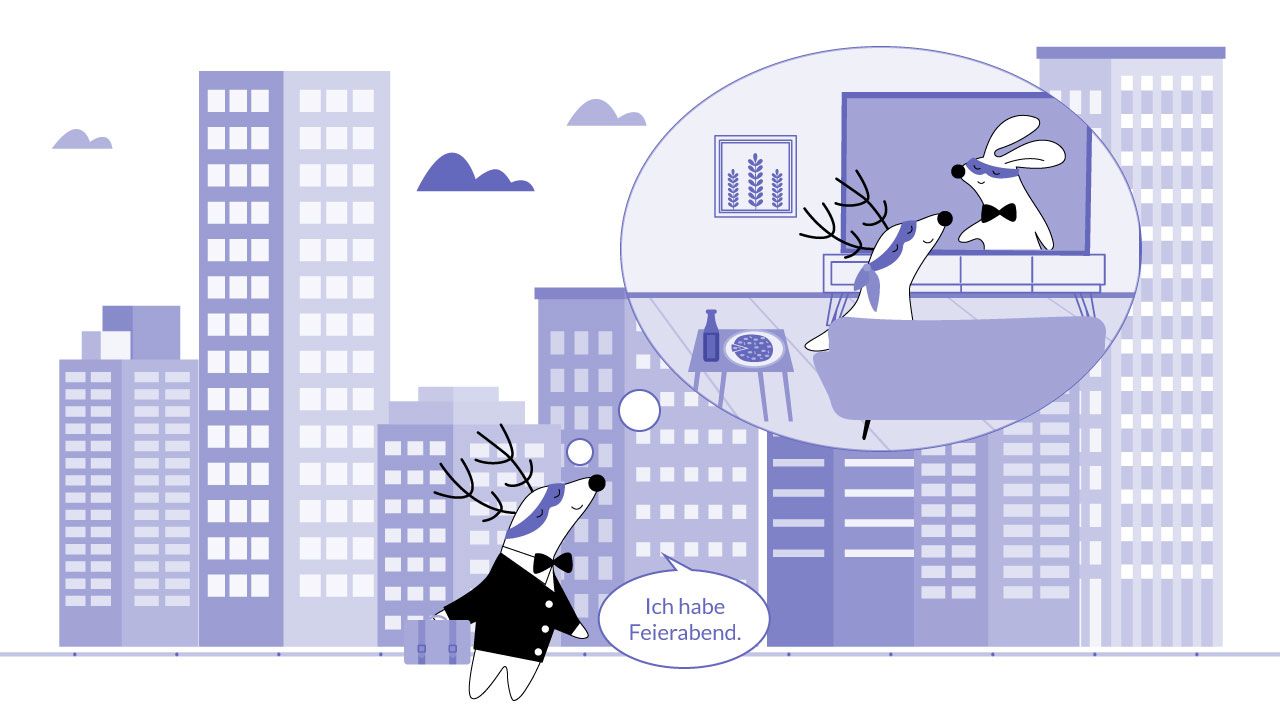
Verschlimmbessern
We all have been in this situation when you try to fix something but make it even worse in the process. For example, when your friend tries to help you with your German and corrects a mistake that you don't even have, they're verschlimmbessern you.
The direct translation of this word is similar to its English equivalent phrase: “to make it seem worse.” It relates both to actions and words – for example, when you said something and instantly regretted it. Fortunately, there’s a simple way to avoid verschlimmbessern – follow the famous saying, “if it ain’t broke, don’t fix it!”
Native
Translation
Unserem Land ging es gut. Dann hat die Regierung etwas geändert und jetzt hat sie das Land verschlimmbessert.
Our country was doing well. Then the government changed something and now it has made things worse.
Sprachgefühl
Sprachgefühl is something that can be literally translated as “language feeling” – a trait that many people who are learning languages desire. This beautiful German word relates to a natural talent for language learning – and fortunately, finding your Sprachgefühl comes with time.
For example, if you’re learning French, after some time you will be able to decide which articles to use when without thinking about that at all, or automatically use idioms in conversations.
This word is also closely related to the feeling that native speakers have about their language. Simply said, Sprachgefühl is kind of a gut feeling about a language – for example, when you just know that a certain sentence sounds wrong but you can’t explain why.
Native
Translation
Nachdem ich zwei Jahre lang Französisch gelernt habe, habe ich endlich Sprachgefühl entwickelt.
After two year of learning French, I finally developed the language feeling.
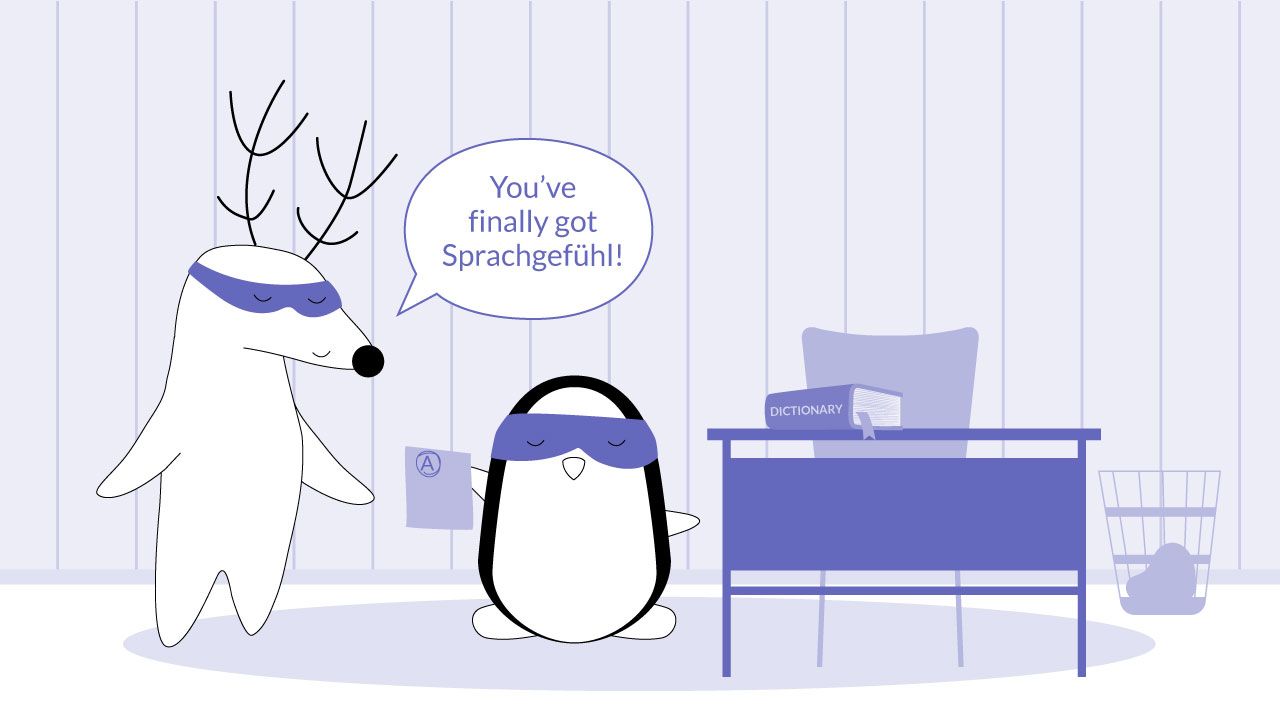
Discovering the True Meaning of Untranslatable German Words
Yes, figuring out the proper translation of some German words can be quite a challenge. After all, this language is full of untranslatable words or phrases where you just have to guess sometimes what the collection of small words put together means.
Fortunately, practice makes perfect. With time, real Sprachgefühl comes, and it’s getting easier to understand some words that don’t exist in the English language. Regular reading and speaking exercises can help boost your vocabulary skills, and ensure that even if you don’t understand something right away, you can figure it out on the go.







